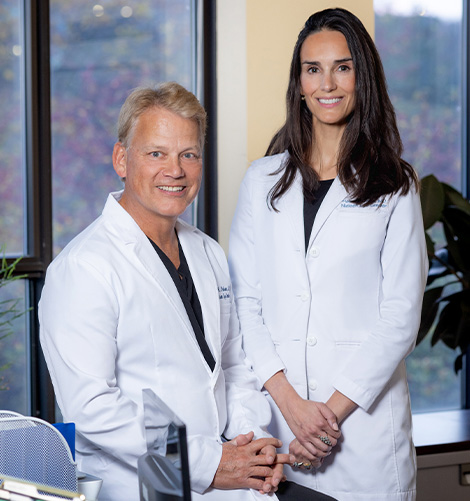What You Need to Know About Macular Degenerationin Boston, MA

Age related macular degeneration (AMD) is a form of vision loss that affects the central vision. It’s most common in patients over 50 years of age and those with a family history of the disease. Annual eye exams are one of the most important ways to diagnose and monitor for the condition.
A Quick Review of Macular Degeneration in Boston
There are two forms of AMD—dry and wet. Dry macular degeneration is the most common eye disease relating to the macula, which is the light-sensitive tissue at the back of the retina that’s responsible for your central vision and fine details. Without the macula, one cannot read small print or see small things directly in front of you. Wet macular degeneration consists of growth of abnormal blood vessels under the retina.
Knowing the Symptoms
The worst symptom of macular degeneration is loss of central vision. However, there are also less severe symptoms, including:
- Dark spots in your central vision
- Distorted central vision
- Blurriness
- Unaffected peripheral vision
Screening for Macular Degeneration
Annual dilated eye exams
An eye care professional will administer drops that widen the pupil and the eye will be examined completely for any disease.
OCT scan
The optical coherence tomography scan uses light waves to create cross-sectional pictures of the retina.
Amsler grid
A home test where you look at a dot in the center of a grid and pay attention to whether any of the lines appear blurry, dark, or distorted.
The only treatment for dry macular degeneration that’s shown promise is vitamin supplementation, particularly the vitamins C, zinc, E, beta-carotene, lutein, copper, and zeaxanthin. These are commonly available over the counter in the eye care aisle. For wet macular degeneration, medications such as Avastin, may slow and resolve the growth of abnormal blood vessels In addition to these treatments, a consultation with a low vision specialist may be helpful for recommendations regarding medical devices and magnifiers that can further improve vision.






